Directed by Aaron Schimberg, ‘A Different Man’ begins with a man named Edward, who has a rare genetic condition called neurofibromatosis, which causes facial disfiguration. An aspiring actor, Edward, is trying to turn his life around, but nothing seems to work out his way. And then he meets Ingrid, a beautiful playwright who offers a hand of friendship, which Edward believes could turn into something more if only he looked normal. So, when he is told about an experimental procedure, he decides to go forward with it. After a scary transformation, Edward becomes normal, but with that begins a new, entirely unexpected journey. SPOILERS AHEAD
Oswald Stirs Edward’s Latent Emotions
Before he did the experimental treatment and completely changed his appearance, Edward was forever haunted by the way people looked at him. Even when they were not looking at him, he could see their conscious effort in averting their gaze. All of this makes Edward feel inadequate, and this insecurity doesn’t go away even after the transformation. Even when he looks normal now, even when he has a well-paying job, a much-better apartment, and a bit of better luck with the ladies, he is quickly sucked back into the same whirlpool of insecurity soon enough, especially after the arrival of Oswald.
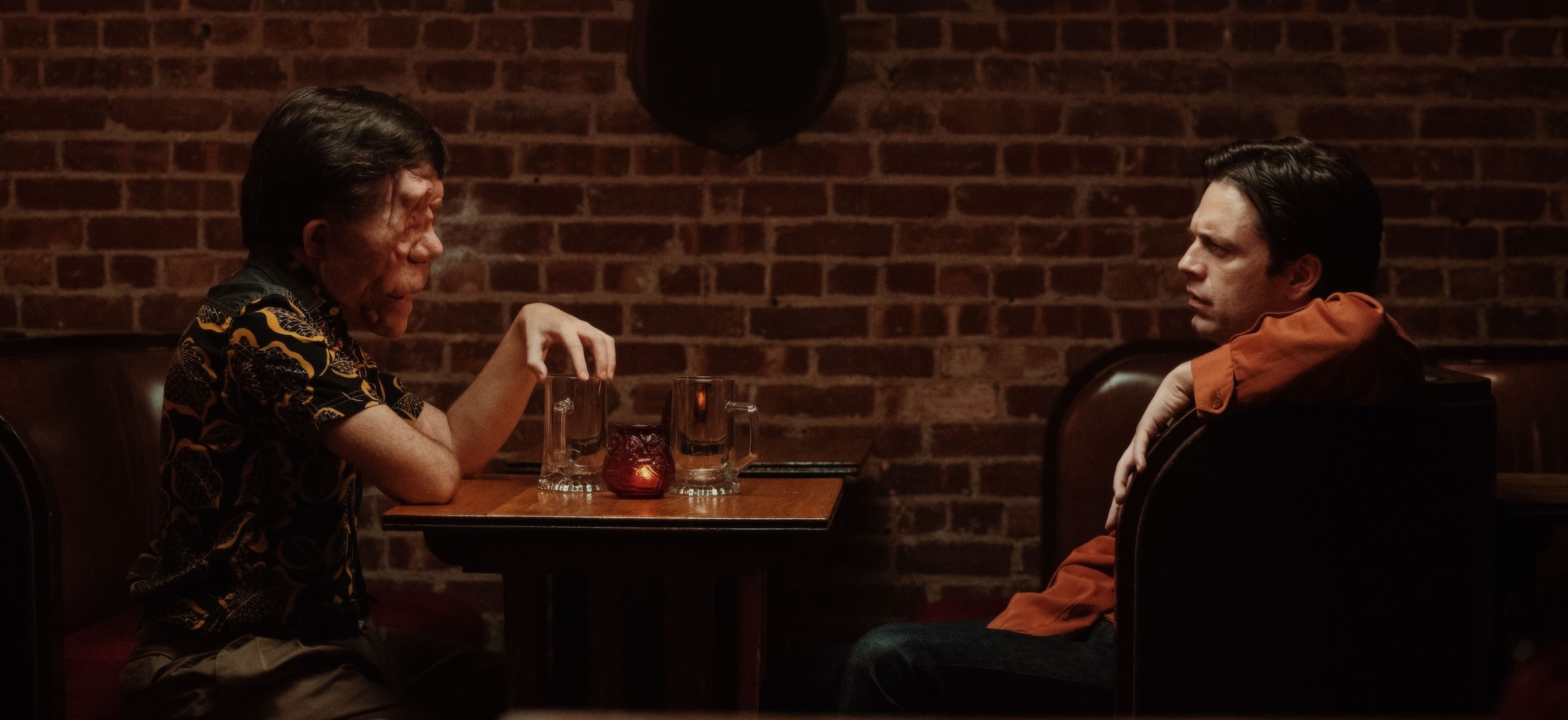
While Edward had been reserved and struggled with confidence, Oswald was like sunshine bursting into a dark room through a window thrown wide open. He is charming and confident, even when the situation might be a bit awkward. He knows how to work for the crowd, how to befriend people whom he has just met, and make them feel comfortable with him. As if his bubbling personality is not enough, he is also good at a lot of things. He is good at accents, he can sing and yodel, he can play the saxophone, and worse, he has a photographic memory, which means he can remember his lines and deliver them perfectly, something that Edward increasingly struggles with.
What bothers Edward the most is how comfortable in his own skin Oswald is and everyone around him seems to completely disregard what he looks like, which isn’t what happened with Edward. Wherever he went, he found the weight of his “abnormal” appearance weighing on him. The impact was so pronounced that Edward believed that his looks were the only thing standing in the way of his perfect life. But the same hurdle didn’t seem to matter to Oswald. He was already living his best life, and that made Edward feel even more inadequate than he did previously.
Why Does Edward Stab the Physical Therapist?
When he is fired from the role of Edward, even when it has been reduced to a meager presence in the final scene, he becomes obsessed with following Oswald, which only makes him more jealous of the man. It seems that not only has Oswald wooed Ingrid, but he also has a daughter from an ex-wife, which tells Edward that perhaps his looks weren’t the thing holding him back from having a love life. As he watches Oswald go about having everything he wants for himself, Edward also starts, in a way, to miss how he used to be. For one, if he hadn’t gone through with the surgery, it would have been him playing the lead role, which Ingrid wrote with him in mind to begin with.
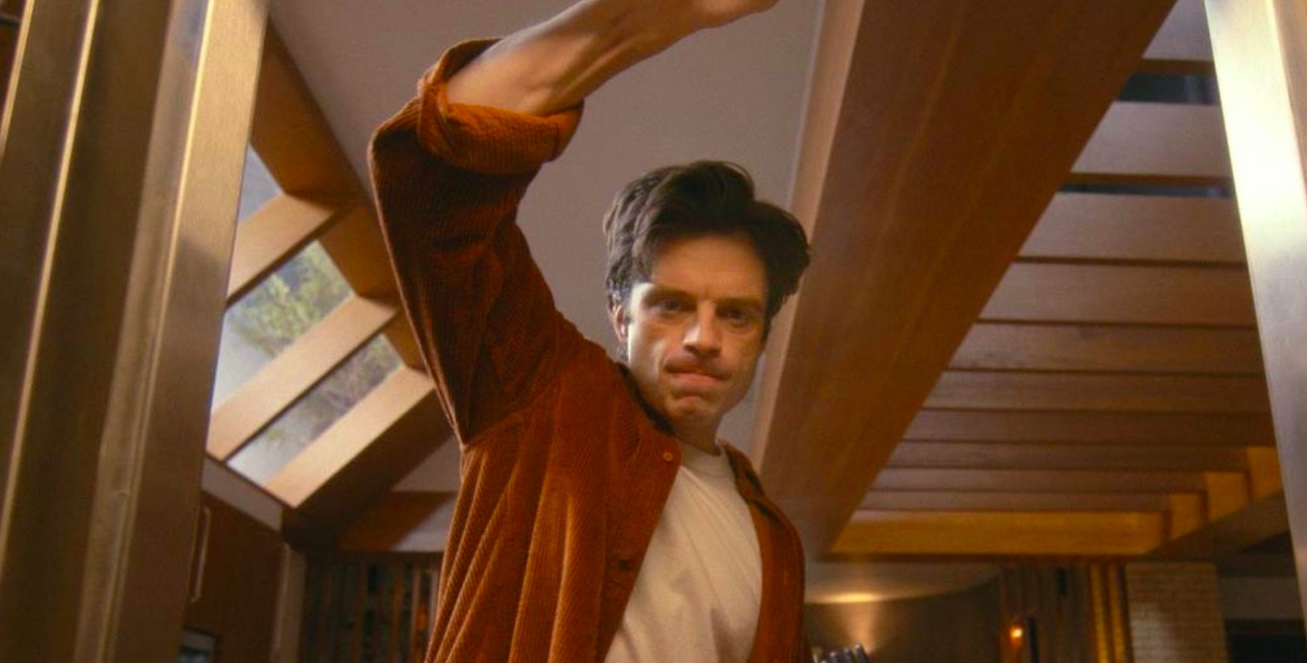
Edward’s obsession culminates in a breakdown that costs him his career, and he ends up with his entire body in a cast when a set piece falls on him after he attacks Oswald on stage. Following such a debacle, anyone would have wanted to keep their distance from him, but Oswald and Ingrid take him in while he recovers, which takes months. Eventually, he comes to the stage where he starts physical therapy, which means he can get back to normal soon enough. But then, the therapist makes fun of Oswald’s appearance, and it flips off something inside Edward.
It could be that, by now, Edward has grown to care for Oswald, who has been there for him through his rock bottom. It could be that Edward doesn’t appreciate a stranger making fun of his friend, who has helped him through his worst of times even when he had every reason not to. More than all of that, however, is Edward’s own anger, which has been simmering inside him for so long. Hearing that about Oswald takes him back to when he looked like Oswald, and people said all those things behind his back and sometimes, even to his face.
It was things like these that made him hate the way he looked and made him feel as if he could never be enough. It was words like these that led him to opt for the surgery that would change, only for him to later realize that he could have still loved himself and had a better life if only he didn’t feel so hated all the time. So, when he stabs the PT, it is his own anger and frustration boiling over and taking the form of violence.
Edward’s Time in Prison Changes Him
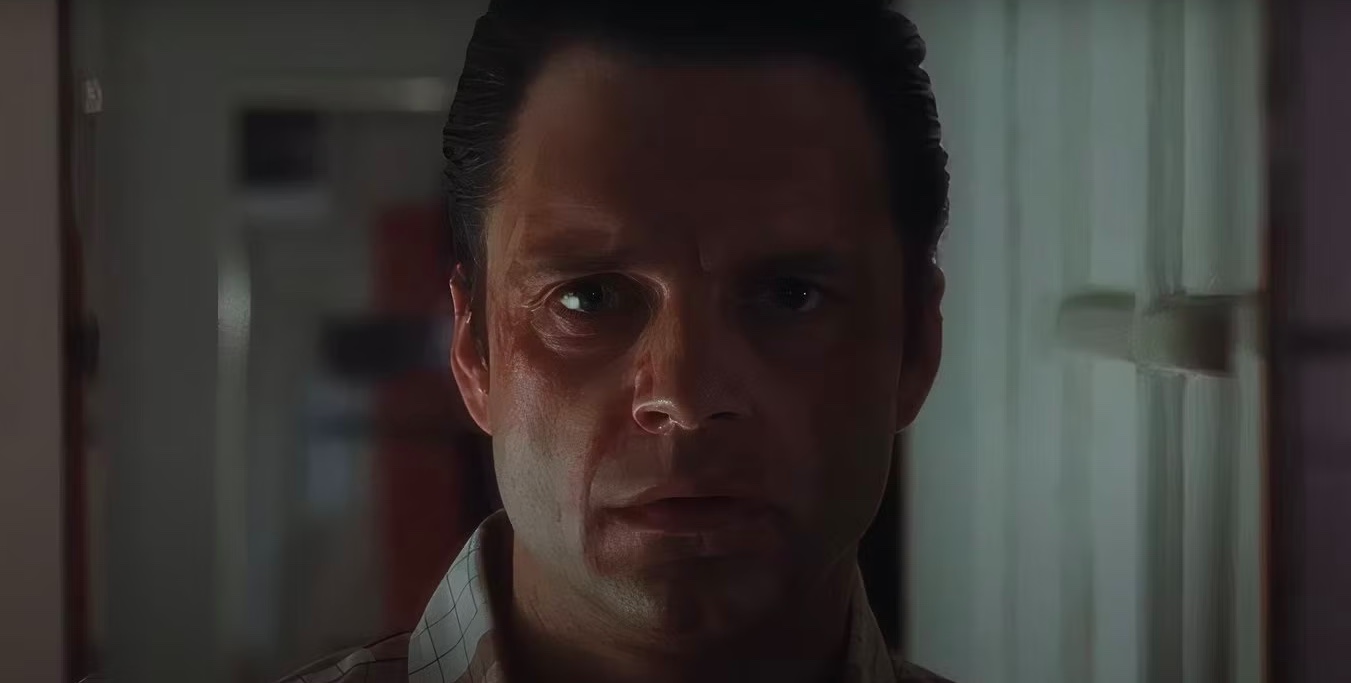
It’s one thing to have a breakdown and storm a play, and it’s something else entirely to stab someone. For his crime, Edward is sent to prison for such a lengthy sentence that he doesn’t breathe free until he has lost his youth and become old and gray. At first, the prison sentence feels like going lower than attacking Oswald on stage and then having the ceiling crash on him, breaking almost every bone in his body. But over the years, it ends up giving him perspective on his situation. So that when he comes out, he is comparatively normal and doesn’t see Oswald as his enemy.
On the street, he comes across Ingrid’s latest play, ‘The Heart Wants What It Wants.’ When Oswald sees him, he is ecstatic, and later, Edward ends up having dinner with the couple. They catch him up on Ingrid’s successful career as a playwright and director, Oswald’s decision not to pursue acting following the success of ‘Edward,’ of their biological children and their adopted children growing up, and eventually their decision to move to a commune in Canada, which sounds a little like a cult. In between this, Ingrid talks about how she has come to abhor ‘Edward’ so much that she doesn’t let anyone stage the play anymore. Oswald, on the other hand, is a bit more appreciative, speaking of how it brought the two of them together.
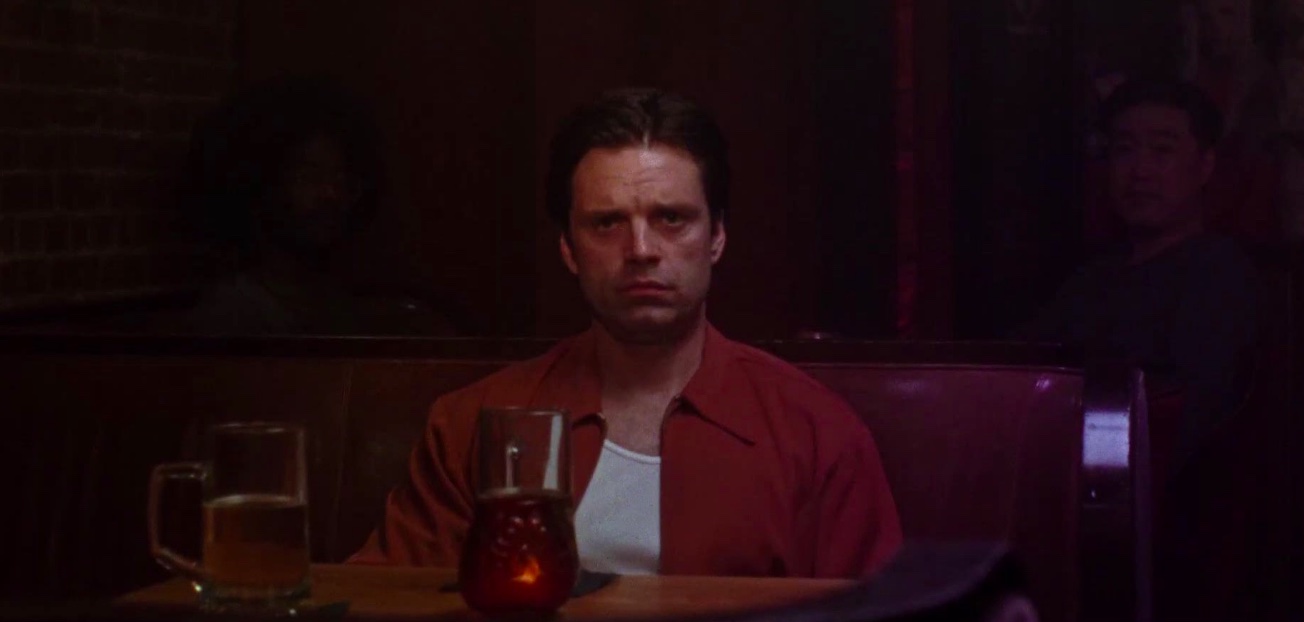
In the midst of all this, Oswald refers to Edward as “Guy” several times, which makes sense because that’s how Edward introduced himself to everyone following his transformation. What doesn’t make sense is when the waiter asks if they are ready to order, and Oswald calls Edward by his real name. It catches us off guard because this is the first time that someone has called Edward by his own name since his transformation. More importantly, no one at the table seems to be shocked at hearing the name. One might think that this is a slip of the tongue as they’d just been talking about Edward in the play. But if it were so, Oswald might have said “oops” and corrected himself, which he doesn’t. Rather, he slips the name as casually in the conversation as if he’d been calling him Edward and not Guy all this while.
Moreover, Ingrid doesn’t react when Oswald calls him Edward. This means that she, too, knows that it is Edward, not Guy. And above all, Edward himself seems completely unperturbed by this sudden switch of names. This means that the whole situation about Edward’s true identity has already been cleared up and acknowledged, and it might have happened a while back, which is why it is such a natural part of their conversation. It catches the audience by surprise because the movie doesn’t explicitly explain when and how this revelation happened, but Oswald, using Edward’s real name, acknowledges the fact that it has happened.
Why Does Oswald Call Edward by His Name?
There are a couple of times when Edward could have come clean about his true identity. The first opportunity he would have had to clear things would be after he attacked Oswald and ended up getting hurt. During the fight, he repeatedly shouts, “I’m Edward.” Considering that Edward is the name of the protagonist in the play and the role that he was supposed to play, it might have been perceived as him trying to claim ownership of the role, expressing his anger over being replaced with Oswald. However, for the next few months spent inside a body cast, he would have had months to reflect on his behavior, which is when he might have found it best to own his identity.
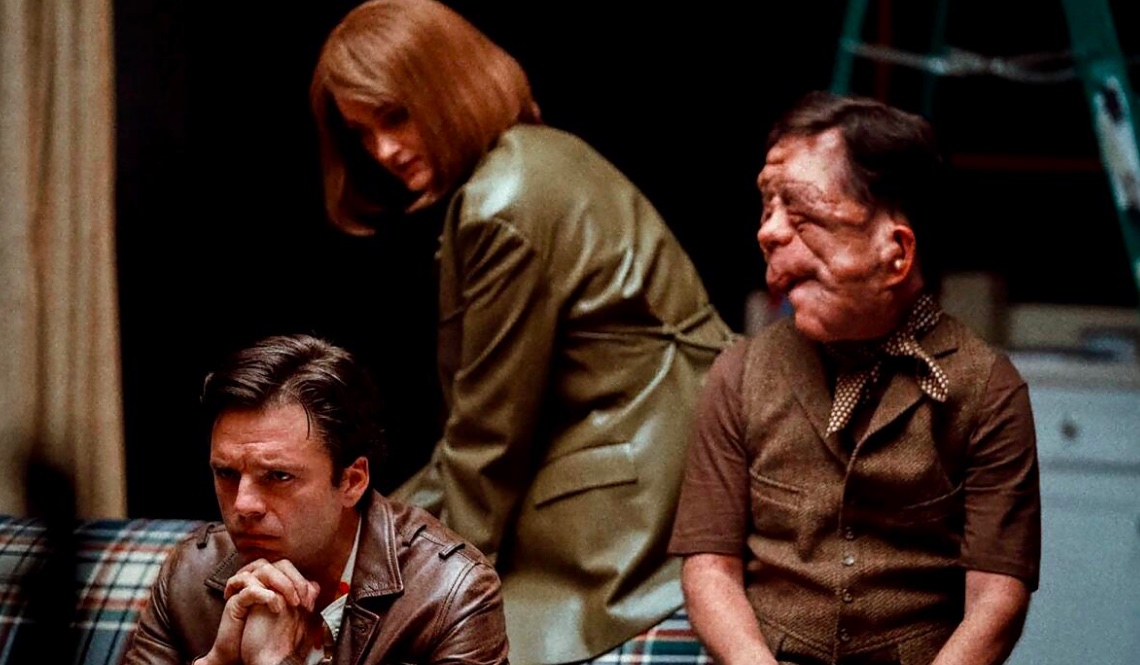
Another instance when the truth may have come out is when Edward stabs the PT. When arrested, his past record would have been opened up, and his history as Edward would have come to light. It might even have been used by the lawyer to explain why Edward was so infuriated by the PT’s comment. Putting his actions in the context of his past may have gained him some sympathy points, or at least, his defense may have used it as a way to at least get a reduced sentence. If not this, then it might have happened when Edward was in prison. It is possible that he received psychological help when he was in prison, and the therapy might have helped him see how running from his identity and not being able to accept who he is might be the root of all his problems. Knowing Oswald, he would have kept in touch with Edward, and it makes sense that at one point, Edward would have found the heart to confide the whole story to Oswald.
No matter the time, it’s clear now that Edward doesn’t have anything to hide. As to why Oswald called him Guy when he knew his name was Edward, it could be because Oswald was used to calling him Guy. It would be a subconscious thing rather than something he did on purpose. He would have realized his mistake and, in trying to correct it, called him Edward. It would also explain why Ingrid uses a somewhat apologetic tone while talking about ‘Edward,’ the play, and is so embarrassed of having made it. It isn’t just that the play doesn’t match up to his work now, but also because she exploited Edward’s story and his pain as a step to forge a successful career for herself.
What makes this exchange even more meaningful is when Oswald calls Edward “my old friend” and says he hasn’t changed a bit. It is said endearingly and as Oswald laughs, so does Edward. His smile seems to reflect Oswald’s feelings of friendship and familiarity as if Edward finally has people who see him for who he is. There are no pretenses or fake names anymore. The entire truth has been laid down on the table and accepted. The things that made him feel lesser about himself — the insecurities, the shame, the self-hatred, are gone, and Edward can be himself completely.
Read More: Where Was A Different Man Filmed?

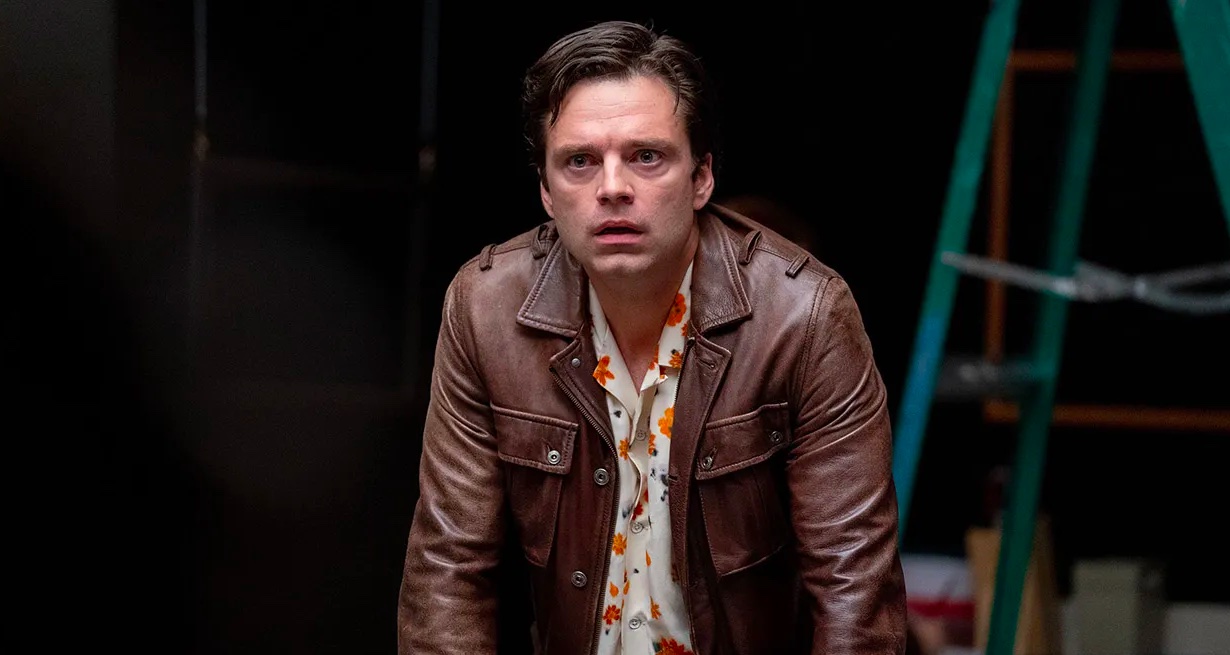
You must be logged in to post a comment.